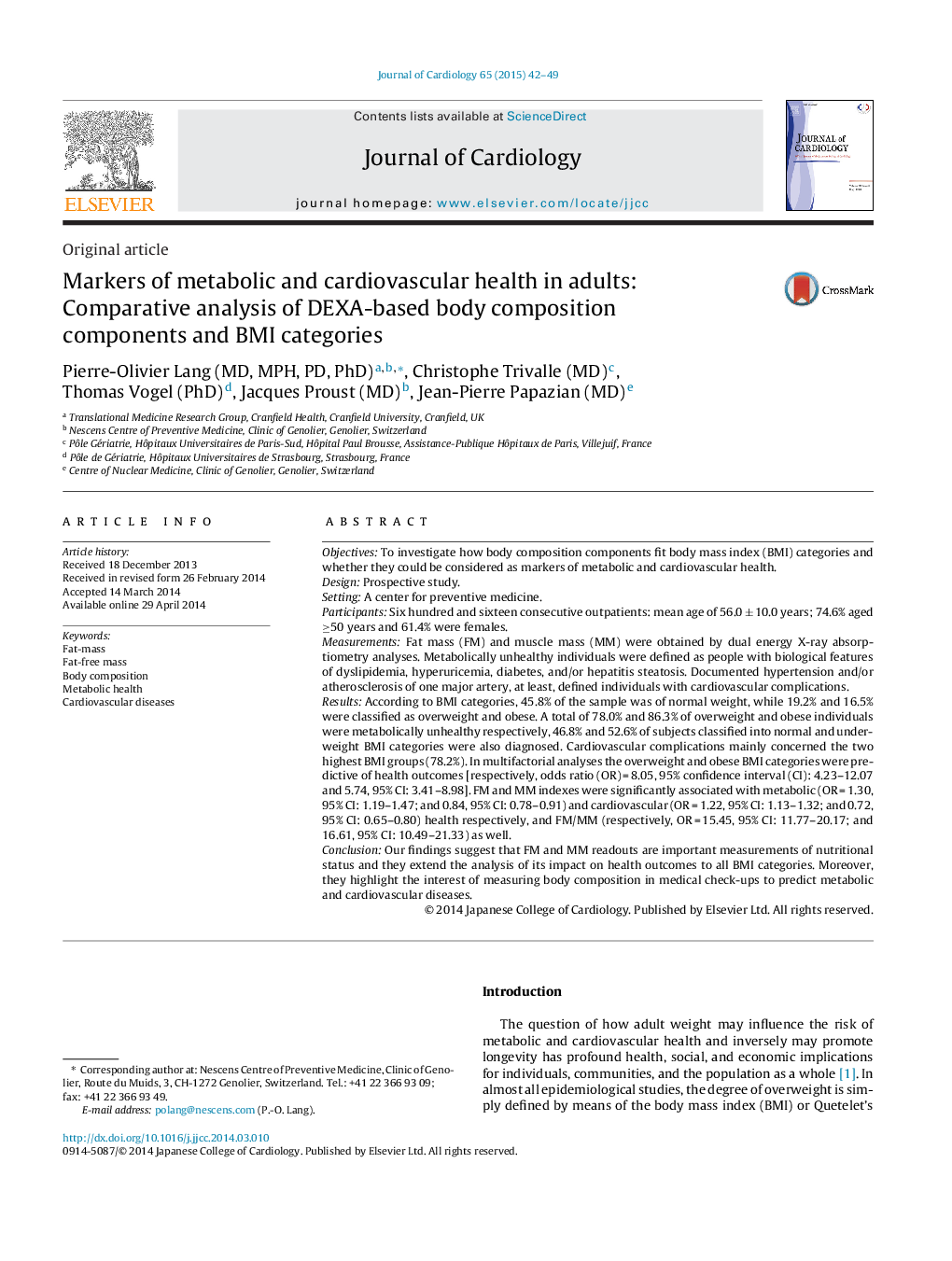| Article ID | Journal | Published Year | Pages | File Type |
|---|---|---|---|---|
| 5984005 | Journal of Cardiology | 2015 | 8 Pages |
ObjectivesTo investigate how body composition components fit body mass index (BMI) categories and whether they could be considered as markers of metabolic and cardiovascular health.DesignProspective study.SettingA center for preventive medicine.ParticipantsSix hundred and sixteen consecutive outpatients: mean age of 56.0 ± 10.0 years; 74.6% aged â¥50 years and 61.4% were females.MeasurementsFat mass (FM) and muscle mass (MM) were obtained by dual energy X-ray absorptiometry analyses. Metabolically unhealthy individuals were defined as people with biological features of dyslipidemia, hyperuricemia, diabetes, and/or hepatitis steatosis. Documented hypertension and/or atherosclerosis of one major artery, at least, defined individuals with cardiovascular complications.ResultsAccording to BMI categories, 45.8% of the sample was of normal weight, while 19.2% and 16.5% were classified as overweight and obese. A total of 78.0% and 86.3% of overweight and obese individuals were metabolically unhealthy respectively, 46.8% and 52.6% of subjects classified into normal and underweight BMI categories were also diagnosed. Cardiovascular complications mainly concerned the two highest BMI groups (78.2%). In multifactorial analyses the overweight and obese BMI categories were predictive of health outcomes [respectively, odds ratio (OR) = 8.05, 95% confidence interval (CI): 4.23-12.07 and 5.74, 95% CI: 3.41-8.98]. FM and MM indexes were significantly associated with metabolic (OR = 1.30, 95% CI: 1.19-1.47; and 0.84, 95% CI: 0.78-0.91) and cardiovascular (OR = 1.22, 95% CI: 1.13-1.32; and 0.72, 95% CI: 0.65-0.80) health respectively, and FM/MM (respectively, OR = 15.45, 95% CI: 11.77-20.17; and 16.61, 95% CI: 10.49-21.33) as well.ConclusionOur findings suggest that FM and MM readouts are important measurements of nutritional status and they extend the analysis of its impact on health outcomes to all BMI categories. Moreover, they highlight the interest of measuring body composition in medical check-ups to predict metabolic and cardiovascular diseases.
